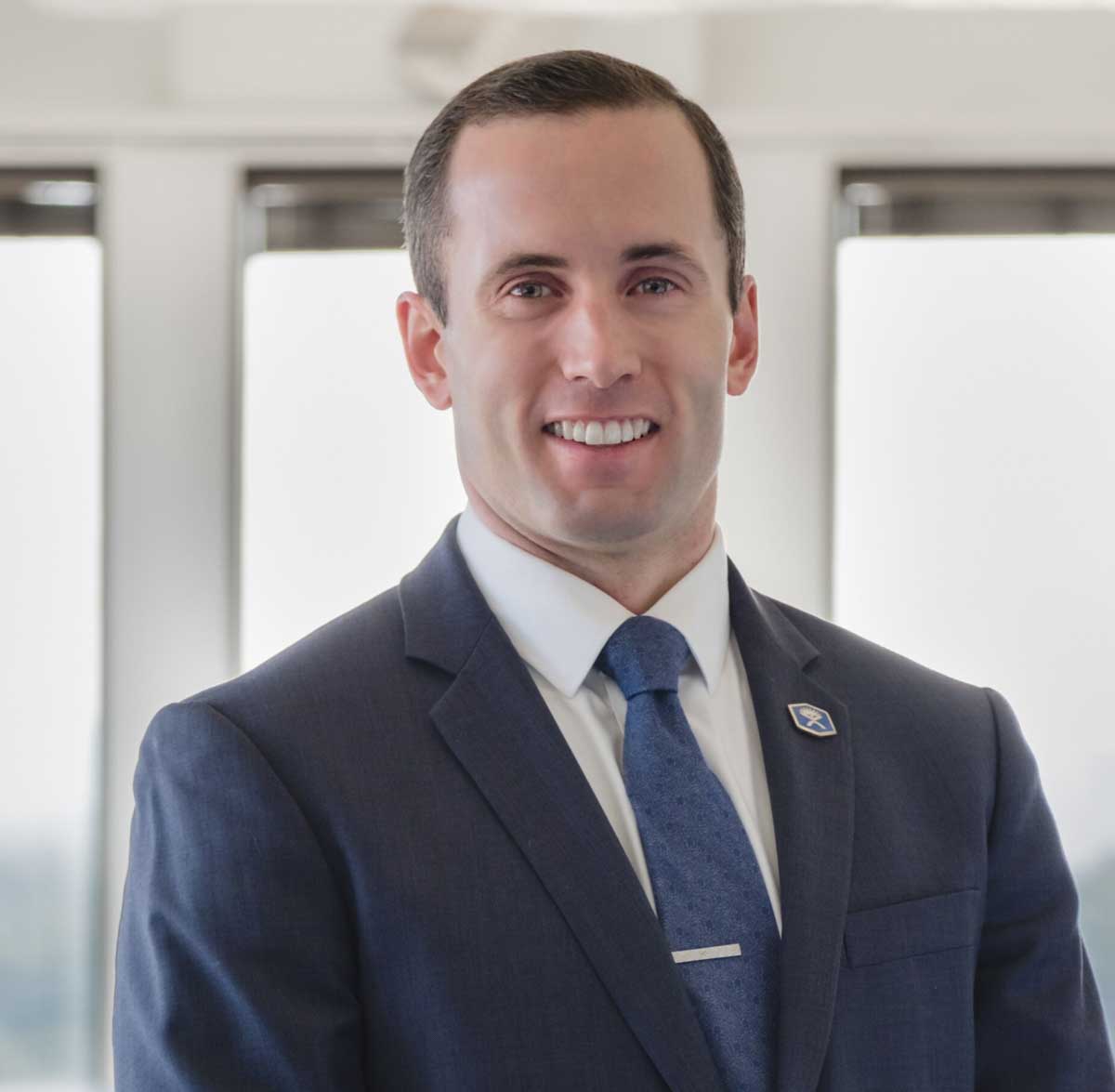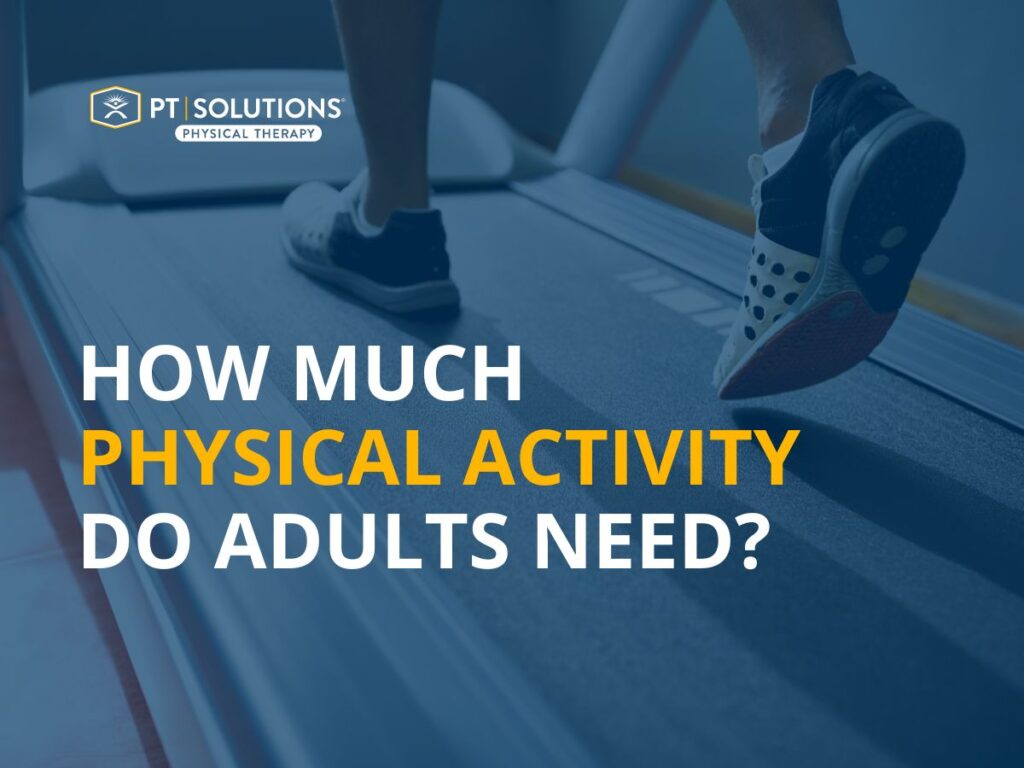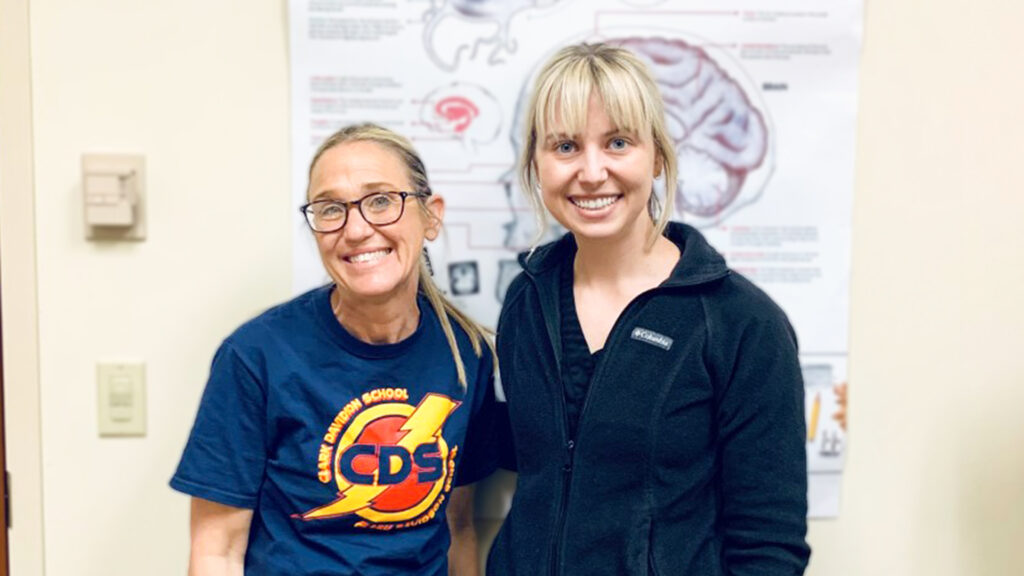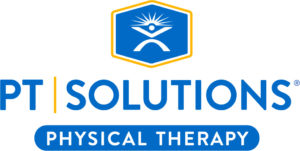PT Solutions
What if I don’t like to Exercise?
October 20, 2020
Building a personalized and enjoyable approach to physical activity

Do you enjoy exercise? If you do, great, you can skip to the physical therapy section. If you don’t, stick around for a couple of minutes.
Motivation, interest, and enthusiasm are important for successful exercise. Sure, exercise can be a miserable experience. You are sore, tired, breathing is challenging, you smell, and you are constantly hungry afterward. What is an easy way to make the experience worse? Do something that brings zero joy.
If you dread the morning run, which number will be higher: completed runs or snooze button strikes? It doesn’t matter that you mapped the perfect course or spent $120 on the running shoes the sales associate swore were “made for you.” We always have a running pros/cons list for an activity, and when it comes to exercise, the scale often tips to the cons side. How can we change that?
For some people, the goals of exercise are enough. While the exercise may be a miserable experience, the recent before/after pictures are enough to keep the scales tipped towards exercising. For many people, however, it is a struggle getting to the first noticeable changes in the before/after pictures. This is where the enjoyment factor of exercise is important.

There is no “best” exercise
Research shows that our motivation, interest, and enthusiasm towards exercise can influence both the likelihood of sticking with the exercise program and the amount of success you experience. If you hate running, don’t run. There are many options available to you. For example, biking, swimming, hiking, lifting weights, tennis, and yoga are all great options. Find an activity that doesn’t feel like exercise but still challenges your body. Walks in the park are great for mental health and are a starting point for physical changes, but eventually, you need to challenge your body.
Exercise does more than help us look good in a swimsuit. Physical activity improves brain function. Memory, attention, and learning all improve with regular exercise. Exercise also helps with controlling pain and speed recovery after injury. Add this to the benefits of building muscle, improving strength and endurance, and controlling weight and it becomes clear why exercise should be a staple in everyone’s life.
The type of exercise you perform will influence the results you achieve. Lifting weights will build more muscle than yoga and hiking will improve your endurance more than walking the neighborhood. After you determine what you enjoy and regularly participate in physical activity, then it is time to assess your goals. But what if there are barriers to implementing an exercise program, such as pain or a history of injuries? This is where a physical therapist can help.
How physical therapy can help
As a physical therapist, I have been called a physical torturer, a physical terrorist, and a few other choice words on occasion. While these comments were in jest (mostly), they represent a commonly held belief about exercise rehabilitation. Many patients dread their exercises. This can impair the rehab process.
This does not mean you need to will yourself to be happy and enjoy the side-ways waddle with a band on your ankles, rather, it means patients and therapists need to work together to create an individualized treatment plan. I encourage you to share with your physical therapist the types of activity you enjoy. Tell them your goals, be specific. When the exercises are specific to your goals, they carry more meaning.
Keep track of your numbers and try setting records. Challenge your therapist to compete with you on a given exercise. Track the small improvements and before long you will notice dramatic changes. As mentioned previously, the same goes for exercise at home. If you choose exercises you enjoy and set goals, you are far more likely to stick with it. Whether exercises are for general fitness, mental health, or rehabbing from an injury, the enjoyment factor can make a big difference.
While physical therapists are typically associated with rehab, they can help you design exercise programs for general fitness and health as well.
 What if I don’t know where to start?
What if I don’t know where to start?
Let’s say you have the desire to exercise but don’t know where to begin. Perhaps you have little equipment at home, you are short on time, or you experience pain every time you try something new. A physical therapist can help here as well.
Physical therapists know the human body and can create an individualized plan for you. They can build a plan based on the equipment you have and your schedule. If pain or fear of injury is the primary concern, they can help. Often, pain can be resolved with gradual increases in activity and lifestyle modifications, such as diet and sleep. As you progress in exercise, your body’s resilience improves. This doesn’t mean you will never suffer an injury, but you will have an improved capacity to recover from it. Regardless of the angle you take, exercise is beneficial for the body.
Reach out to us today to consult with a physical therapist about developing an exercise program or rehabbing an injury. We will help you design a personalized program and provide recommendations for different exercise strategies that fit your lifestyle.
ABOUT THE AUTHOR

Zach has numerous research publications in peer-reviewed rehabilitation and medical journals. He has developed and taught weekend continuing education courses in the areas of plan of care development, exercise prescription, pain science, and nutrition. He has presented research at numerous national conferences including APTA CSM, APTA NEXT, and the ACRM annual conference.
Zach is an active member of the Orthopedic and Research sections of the American Physical Therapy Association and the Physical Therapy Association of Georgia. He currently served on the APTA Science and Practice Affairs Committee and the PTAG Barney Poole Leadership Academy.




